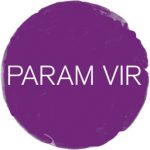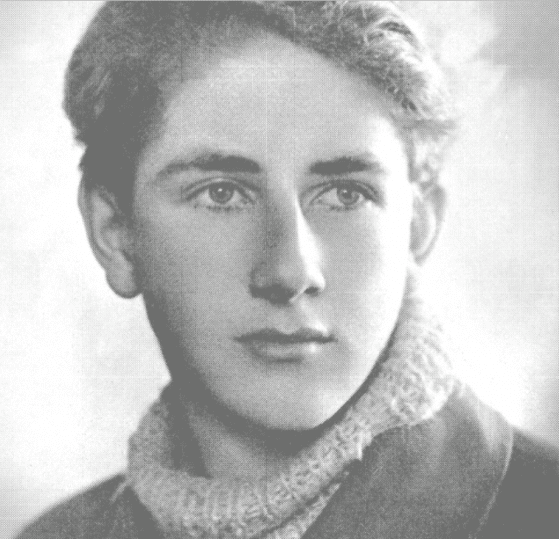Ultimate words: Infinite song
LINK TO: Link
YEAR: 1997
ORCHESTRATION: baritone, 6 percussion, piano
DURATION: 26 minutes
LANGUAGE: English
WORDS BY: Kim Malthe-Bruun
SOLOIST(S): baritone
COMMISSIONED BY: the Berlin Festival
AVAILABILITY: Novello & Co.
PREMIERE DATE: March 13, 1997
PREMIERE INFORMATION:
Slagwerkgroep Den Haag conducted by Micha Hamel
piano solo: Sepp Grotenhuis
baritone solo:
British Premiere by Ensemble Bash
baritone solo: Garry Magee
piano solo: Rolf Hind
WORK NOTES:
Kim Malthe-Bruun was a Danish seaman who, in 1944, at the age of twenty, left his ship in order to work for the underground resistance movement in Denmark. His activities led to his arrest by the Nazis, who subsequently tortured him. During his period of incarceration Kim kept up a remarkable diary he had been writing in the form of letters he smuggled to his mother Vibeke, his aunt Anna Ida Bruun and his friend Hanne. His texts bear witness to the grim realities of a prison camp, but also to the qualities of wisdom, forgiveness and compassion that arose within him to transcend the brutality he endured. The passage here is an extract from one of the last two letters he wrote just before he was executed, one month before the 2nd World War came to an end.
The idea of writing a work that celebrates the courage and vision of a young person has attracted me since I was a teenager. Kim Malthe-Bruun was a Danish seaman who, in 1944, at the age of twenty, left ship in order to work for the underground movement in Denmark. His activities led to his arrest by the Nazis, who subsequently tortured him and sentenced him to death. During his period of incarceration Kim kept up a remarkable diary he had been writing in the form of letters to his mother Vibeke, his aunt Anna Ida Bruun and his friend Hanne. These texts give us insight not only into his grim reality as a prisoner, but also into the qualities of wisdom and compassion that arose within him to meet and transcend this brutal experience.
My composition uses fragments from Kim’s letters. Following an instrumental introduction, the first text MÆRKELIGT LIV (Amazing Life) is taken from a letter to Kim’s aunt, written at a time when Kim was still free and working for the Danish Resistance. This is followed by a Drum Chant, which is a series of variations on a basic rhythmic pattern (taal). The taal is symbolic of the courage with which Kim – and others like him – rose up to confront the Nazi power. Kim’s writings make clear that he believed evil could not just be ignored, vilified or suppressed. It needed to be met and resisted, with all the strength and sacrifice that it takes to do so. That this courage was also fired by his compassion for the wrong-doer makes it all the more poignant.
The Chant leads to the main Aria HANNE which composes out fragments from Kim’s last letter to his friend Hanne, just two days before he was executed by a firing squad. I have tried, in this movement, to make the percussion instruments speak with many different voices, and to blend into their song the energy and power of the sea, which Kim loved so much.
Ultimate words: Infinite song is written to honour the truth that manifest within this wise and gentle human being who lived his life with so much love.
February 3, 1997
London
Ultimate words: Infinite song
Text by Kim Malthe-Bruun (8 July, 1923 – 6 April, 1945)
translated from the Danish by Gerry Bothmer
- Introit – piano and percussion
- Recitative – MÆRKELIGT LIV (Amazing Life) – voice, piano and percussion
fragment of a letter to Anna Ida Bruun (Nitte), Kim’s aunt.
Hellerup. 28 November 1944
Everything is trembling and the agony which is part of every birth is everywhere. Never has the world been exposed to such suffering, but never has the feeling of life been so strong or so intense as now. I’m living an amazing life among amazing people, and it is through this that I have come close to them.
III. Chant I – THE DRUMS OF COURAGE – percussion
- Recitative and Aria – HANNE – voice, piano and percussion
fragments of Kim’s last letter to his friend Hanne.
Vestre Prison, German Section, Cell 411. 4 April 1945
My own dearest Hanne,
Today I was taken before the military tribunal and condemned to death. What a terrible blow this is for a girl of twenty! I’ve been given permission to write this farewell letter, but what shall I write? How shall I formulate my swan song? Time is short and there is so much to say.
. . . My love for you is without bounds, but not more so now than before. It’s not a love which causes me pain. This is the way it is, and I want you to understand it. There is something inside me alive and growing – an inspiration, a love – call it what you like; something which I still haven’t been able to define. Now I’m going to die and I still don’t know if I have started a little flame in another being, a flame which will survive me. But still, my heart is at rest because I’ve seen the richness and abundance of nature. No one takes notice if a few seeds are trampled under and die. When I see all the riches that still live on, why should I despair?
Lift up your head, my most precious love and look! The sea is still blue, the sea which I loved and which has enveloped us both. Now you will live for the two of us.
. . . one day you will meet the man who will be your husband. The thought of me will flash through you, and perhaps deep down you will have a vague, uneasy feeling that you are betraying me or something in you which is pure and sacred. Lift up your head once more, Hanne, look straight into my eyes which are smiling at you and you will understand that the only way to betray me is by not completely following your natural instincts. When you see him, let your heart go out to meet him – not to drown your sorrow but because you truly love him.
. . . all that is life to me is now concentrated on you. I would like to breathe into you all the life that is in me, so that it can go on and as little as possible of it go to waste. This is the way I was made.
- Chant II – THE DRUMS OF COMPASSION – percussion
- Aria- KÆRE MOR (Dearest Mother) – voice, piano and percussion
fragments of Kim’s last letter to his mother Vibeke.
Vestre Prison, German Section, Cell 411. 4 April, 1945.
I’m not of importance and will soon be forgotten, but the ideas, the life, the inspiration which filled me will live on. You will find them everywhere – in a loving smile, in the new green of spring, in people you will meet on your way, Perhaps you will also find what was of value to me, you will love it and you won’t forget me.
I would have liked to grow and mature, but I will still live in your hearts and you will live on because you know that I am in front of you on the road and not behind, as you had perhaps thought at first.
You know what has always been my greatest wish and what I thought I would become. Mother dear, come with me on my journey. . .
I’ve never betrayed what is in my heart, and now I seem to see the unbroken line which has run through my life. I’m not old, I ought not to die, and still, it seems so simple and natural to me. It’s only the brutal way which at first terrifies us.
I have so little time left; I don’t quite know how to explain it, but my mind is completely at peace.
VII. Postlude – piano and percussion
fragment from Kim’s diary of 27 March, 1945 as he had reflected on the crucifixion of Jesus. (Not sung)
. . . Then he was swept up by an enormous wave which finally carried him to his death. It so filled his mind that he didn’t have an instant’s fear or hesitation. When he met his executioners they put him physically out of the material life. He felt so liberated, so uplifted, that he no longer saw them with the eyes of a human being, but with infinite wisdom and compassion . . .
[Text Copyright © Random House, Inc., New York, 1955. Used by permission.]

